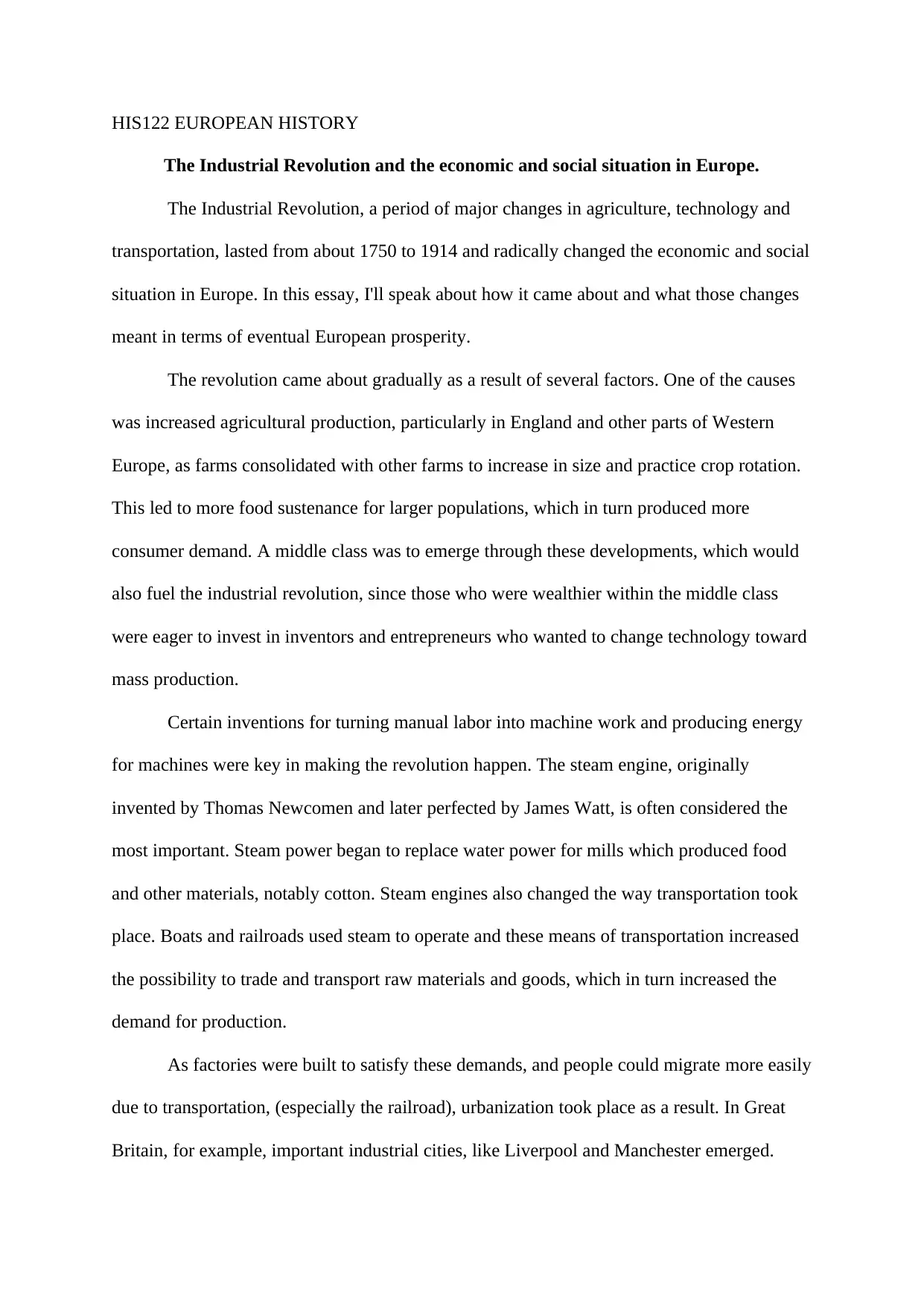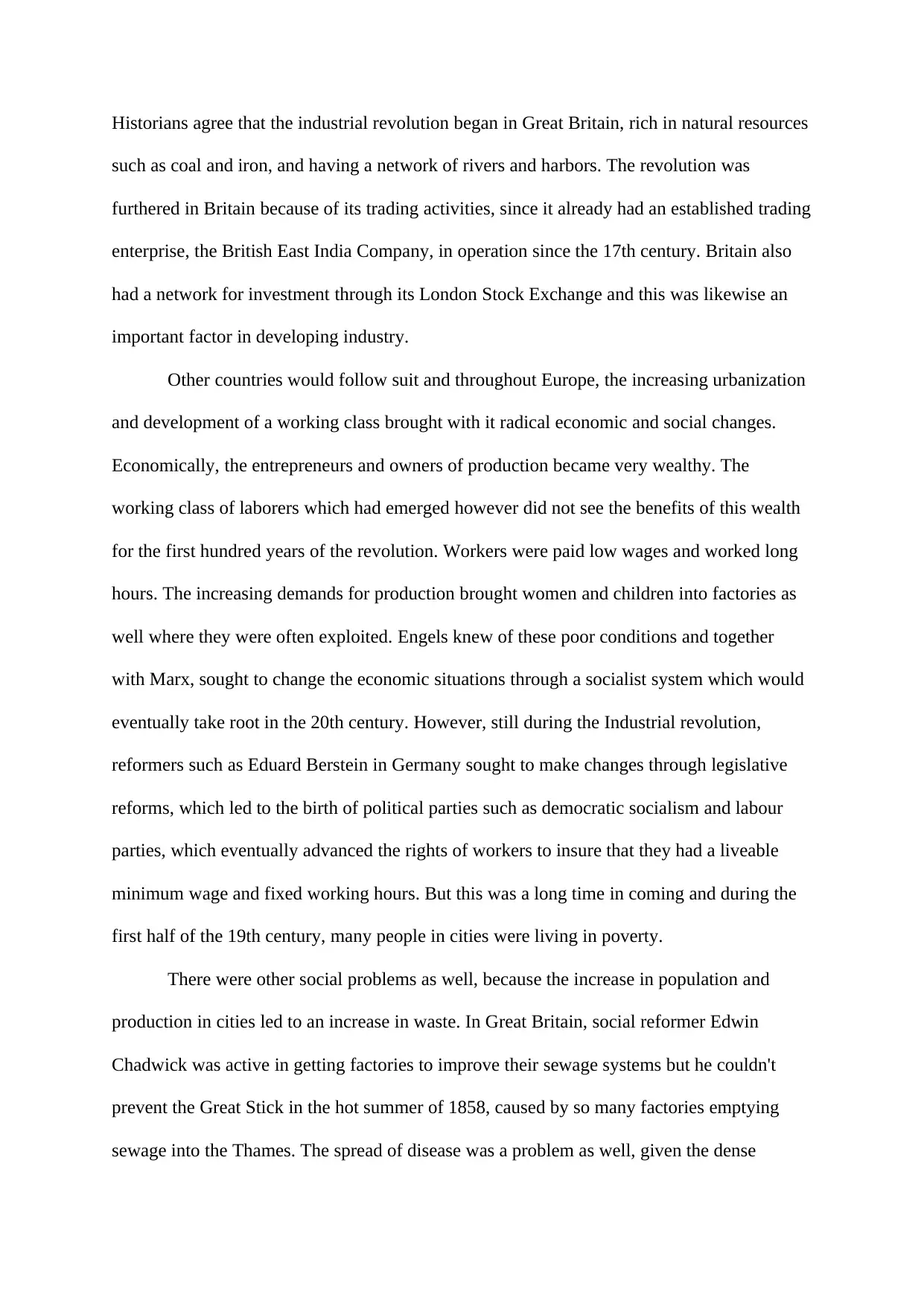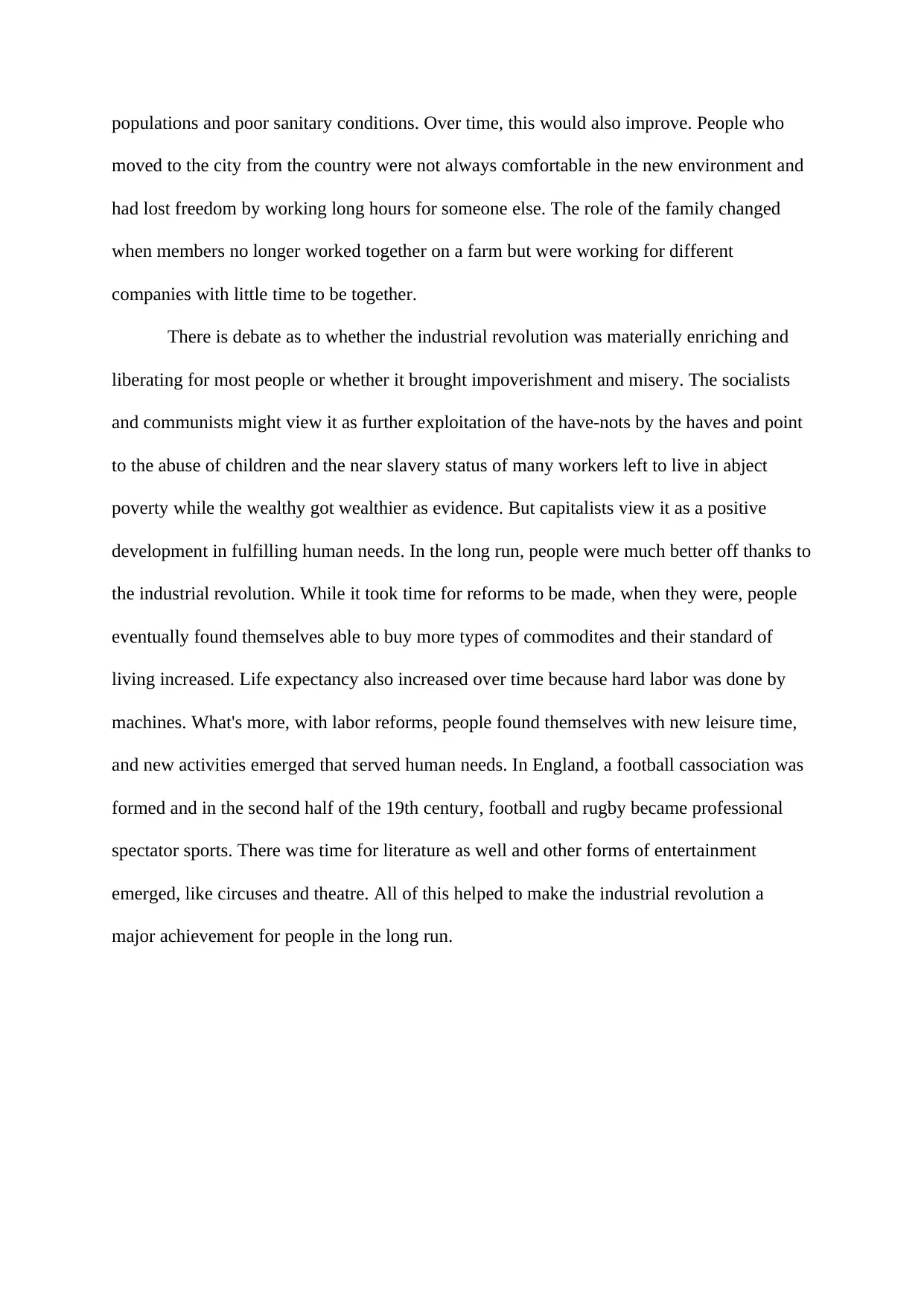HIS122: Examining the Economic and Social Impact in Europe
VerifiedAdded on 2021/04/05
|3
|1021
|81
Essay
AI Summary
This essay provides a comprehensive analysis of the Industrial Revolution and its profound impact on Europe, spanning from approximately 1750 to 1914. It begins by examining the factors that spurred the revolution, including advancements in agriculture, increased food production, and the emergence of a consumer-driven middle class. The essay highlights key technological innovations, such as the steam engine, which revolutionized transportation and manufacturing, leading to urbanization and the growth of industrial cities. It explores the economic changes, including the rise of wealthy entrepreneurs and the exploitation of the working class, and the subsequent emergence of reform movements and political parties advocating for workers' rights. The essay also discusses the social problems that arose, such as poor living conditions and the spread of diseases, while also acknowledging the long-term benefits of the revolution, including increased standards of living, improved life expectancy, and the development of leisure activities. It offers a balanced perspective on the historical debate regarding the revolution's impact, acknowledging both its positive contributions and negative consequences.
1 out of 3









![[object Object]](/_next/static/media/star-bottom.7253800d.svg)